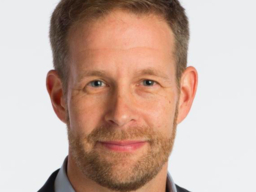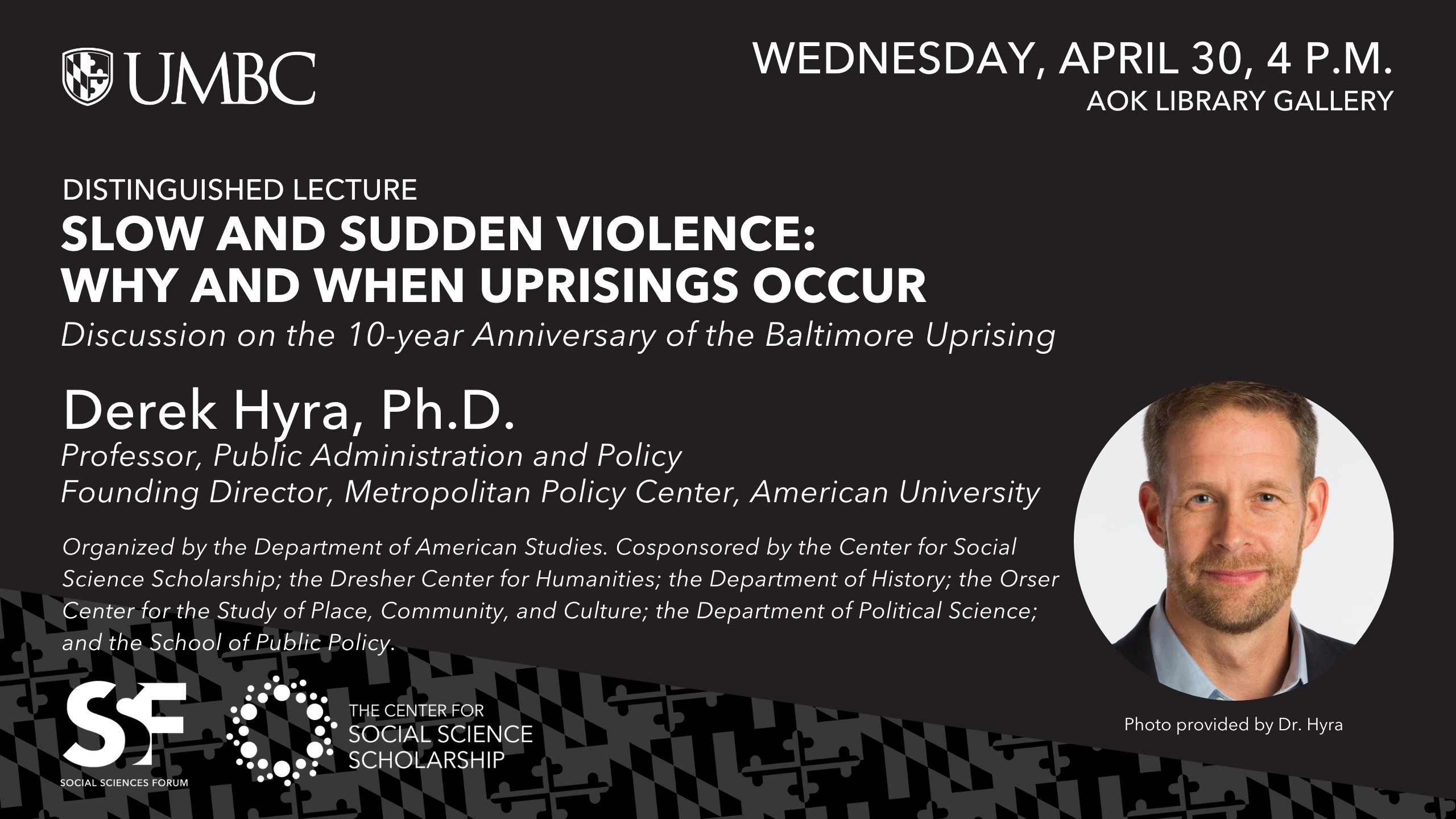Slow and Sudden Violence: Why and When Uprisings Occur
with Derek Hyra, American University
Location
Library and Gallery, Albin O. Kuhn : Gallery
Date & Time
April 30, 2025, 4:00 pm – 5:30 pm
Description
A discussion on the 10-year anniversary of the Baltimore uprising.
Derek Hyra, America University in conversation with:
Derek Musgrove, Associate Professor, History, UMBC
Nicole King, Associate Professor, American Studies, UMBC
Upon the ten-year anniversary of the 2015 Baltimore Uprising, we are hosting a panel discussion based on Prof. Derek Hyra’s recent book Slow and Sudden Violence: Why and When Uprisings Occur (University of California Press, 2024) To confront American unrest, Hyra urges that we end racialized policing, stop Black community destruction and displacement, and reduce neighborhood inequality. Hyra will be in conversation with UMBC Professors Derek Musgrove (History) and Nicole King (American Studies) on the issues the book addresses and the future of U.S. cities.
Derek Hyra is a professor in the Department of Public Administration and Policy within the School of Public Affairs at American University. His research focuses on processes of neighborhood change, with an emphasis on housing, urban politics, and race. Dr. Hyra is author of Slow and Sudden Violence: Why and When Uprisings Occur (University of California Press, 2024), Race, Class, and Politics in the Cappuccino City (University of Chicago Press, 2017), and The New Urban Renewal: The Economic Transformation of Harlem and Bronzeville (University of Chicago Press, 2008). He is also co-editor of Capital Dilemma: Growth and Inequality in Washington, DC (Routledge, 2016).
Organized by the Department of American Studies. Cosponsored by the Center for Social Science Scholarship; the Dresher Center for Humanities; the Department of History; the Orser Center for the Study of Place, Community, and Culture; the Department of Political Science; and the School of Public Policy.
CS3 sponsored events are open for full participation by all individuals regardless of race, color, religion, sex, national origin, or any other protected category under applicable federal law, state law, and the University’s nondiscrimination policy.

